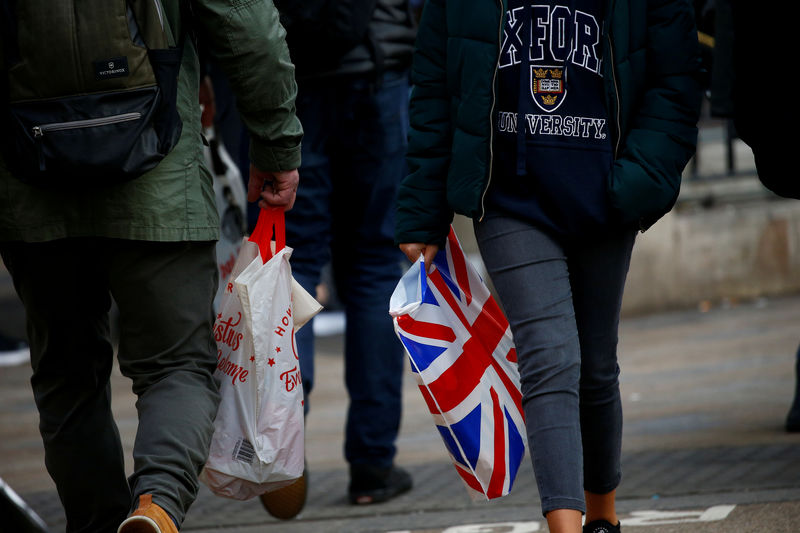LONDON (Reuters) - British retailers saw their sales flat-line in August as shoppers cut back on non-essentials and some households stockpiled food ahead of Brexit, surveys showed on Tuesday.
Annual total sales growth fell to zero from the weakest July rise on record of 0.3%, the British Retail Consortium, which groups major high-street chains and supermarkets, said.
That pushed down the average pace of sales growth over the past 12 months to 0.4%, the weakest since the BRC began its data collection in 1995.
"Greater economic and political uncertainty has driven down consumer demand," BRC Chief Executive Helen Dickinson said. "While the summer weather gave a small boost to food sales, this was canceled out by a drop in non-food sales."
Britain's consumers have propped up Britain's economy since the 2016 Brexit referendum, helping to offset cuts to investment spending by companies. But economists say recent signs of a weakening in spending by households raise the risk of a recession as the country prepares to leave the European Union.
Prime Minister Boris Johnson says he will take Britain out of the EU on Oct. 31 without a transition deal to smooth the economic shock, unless Brussels makes concessions which it has so far ruled out.
The BRC showed that in like-for-like terms, which strips out changes in retail space, sales were down 0.5% compared with August 2018, their fifth fall in the first eight months of 2019.
Barclaycard also said it saw signs of concern about Brexit among consumers.
The payments card firm reported monthly consumer spending growth of 1.3% - sharply slower than growth of 4.5% in August last year.
Spending at discount stores bucked the trend and rose by 8.0%, a sign of the cautious mood of many consumers.
A survey commissioned by Barclaycard showed almost one in five respondents was stockpiling everyday items in case of shortages in the future. Tinned foods, household supplies and dried goods topped the list of stockpiled products, it said.
However, a senior executive of a major British supermarket group, who asked not to be identified, told Reuters its most recent sales data had not shown any evidence of any consumer stockpiling.
"A weak pound and worries about rising prices are causing concern for many, with Brits looking to better balance their household budgets," Esme Harwood, a Barclaycard director, said.

"That said, spending at pubs and restaurants remains robust, suggesting Brits have been making the most of the longer days by relaxing and dining out."